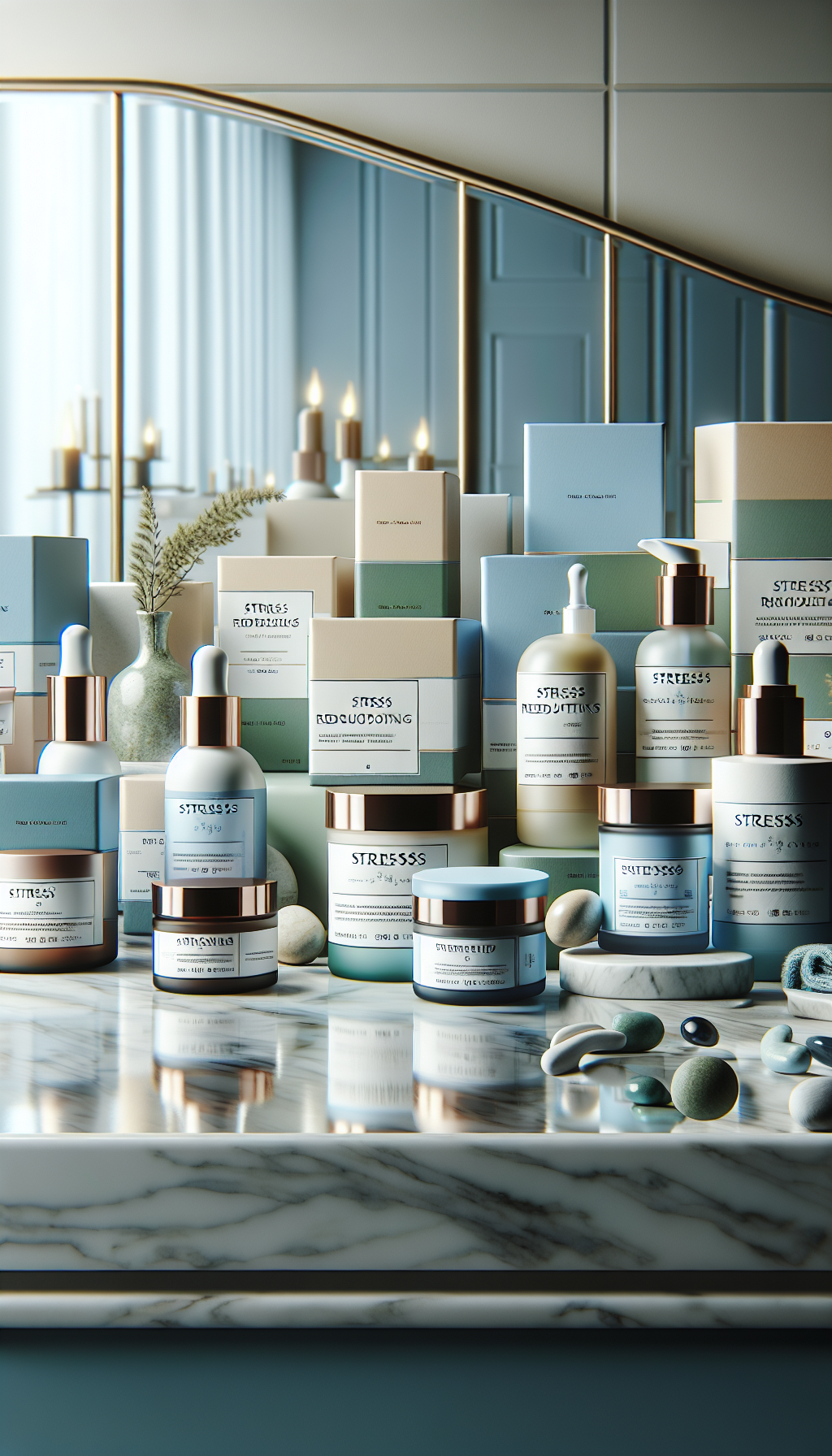In our fast-paced world, stress has become a constant companion for many. While its impacts on mental and emotional health are widely acknowledged, stress also exerts a significant toll on our largest organ – the skin. The aging effects of stress on the skin are profound, yet often overlooked in our daily skincare routines. In this comprehensive guide, we delve into the science behind skin aging, explore how stress accelerates this process, and offer practical strategies to protect and rejuvenate your skin.
The Science of Skin Aging and Stress
Skin aging is a natural process influenced by various intrinsic and extrinsic factors. Intrinsic aging is the chronological aging that affects skin in the same manner it affects all organs. On the other hand, extrinsic aging is driven by environmental factors and lifestyle choices, including sun exposure, pollution, and, significantly, stress.
Stress triggers the release of cortisol, the body’s primary stress hormone, which has numerous deleterious effects on the skin. Elevated cortisol levels lead to increased oil production, contributing to acne and other skin conditions. Moreover, cortisol can break down the skin’s collagen and elastin, proteins vital for maintaining skin’s structure and elasticity, thus accelerating the formation of wrinkles and fine lines.
The Role of Cortisol in Skin Health
Cortisol doesn’t act alone. It stimulates a cascade of responses that further impair the skin’s health and appearance. Chronic stress can impair the skin’s barrier function, leading to dryness, reduced healing ability, and increased susceptibility to irritants and allergens. This compromised barrier may exacerbate existing skin conditions such as rosacea, psoriasis, and eczema.
For those interested in the broader implications of skin health, our comprehensive guide on Skin Health provides an extensive look into maintaining a vibrant and healthy skin.
Lifestyle Adjustments for Stress Management
To mitigate the aging effects of stress on the skin, we must start with stress management. Integrating relaxation techniques such as meditation, yoga, and deep-breathing exercises into your daily routine can significantly reduce stress levels. Regular exercise is also a potent stress reliever and has been shown to improve skin health and complexion, as discussed in "How Exercise Impacts Skin Health and Complexion".
Nutritional Support for Resilient Skin
A balanced diet rich in antioxidants can help combat the oxidative stress that accelerates skin aging. Foods high in vitamins C and E, selenium, and flavonoids are particularly beneficial. The omega-3 fatty acids found in fish and flaxseeds are also crucial for maintaining skin health, offering anti-inflammatory benefits that can soothe stress-affected skin, a topic explored in "Exploring the Benefits of Omega-3s for Healthy Skin".
Topical Skincare Solutions
While lifestyle adjustments lay the foundation for stress-resilient skin, topical skin care strategies bolster these efforts. Using gentle skincare products that support the skin’s barrier function can help reinforce its defenses against stress-induced damage. Key ingredients to look for include ceramides, hyaluronic acid, and niacinamide.
For those struggling with adult acne exacerbated by stress, a thorough understanding of the condition is essential. "Understanding the Causes of Adult Acne and How to Fight It" provides valuable insights into managing this stress-related skin issue.
Advanced Skincare Treatments
Advanced skincare treatments such as professional facials, chemical peels, and laser therapy can also help reverse the signs of stress on the skin. These procedures can stimulate collagen production, improve texture, and reduce the appearance of stress-induced aging.
High-Quality External Resources
To further support the points made here, there are several niche resources that offer deeper insights:
- The International Dermal Institute provides specialized knowledge on how stress affects skin aging, offering research-based education for skincare professionals.
- The American Academy of Dermatology offers practical tips for managing stress to prevent skin problems.
- Psychological Stress and Skin Aging is a detailed study available on the National Institutes of Health’s PubMed Central, examining the complex relationship between psychological stress and skin aging.
The Importance of Sleep
Adequate sleep is essential for skin rejuvenation. During sleep, the skin undergoes repair and regeneration. Lack of sleep can increase cortisol levels, thereby exacerbating stress-related skin aging. Ensuring a good night’s sleep is a critical component of any skin-protective strategy.
Conclusion
The aging effects of stress on the skin are both significant and manageable. By adopting a holistic approach that includes stress management, proper nutrition, and targeted skincare, you can protect your skin from the ravages of stress and maintain a youthful, radiant complexion. Remember that combating stress is a multi-pronged endeavor that includes taking care of your mental well-being, body, and skin. Start today to embrace practices that not only alleviate stress but also fortify your skin against its aging effects.
Taking control of stress and its impact on your skin is not just about looking good – it’s about fostering a healthier, happier you.



